
The United States is attempting to seize a Russian-flagged oil tanker with links to Venezuela after a more than two-week-long pursuit across the Atlantic and as a Russian submarine and warship were close by, two U.S. officials told Reuters on Wednesday.The seizure, which could stoke tensions with Russia, came after the tanker, originally known as the Bella-1, slipped through a U.S.
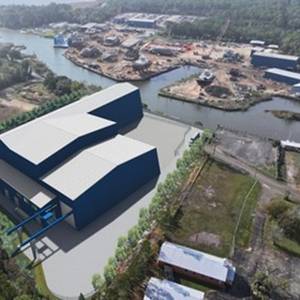
Facility will include 150,000 square feet of covered manufacturing space optimized for serial productionNew yard will support 200 new jobs and expands shipbuilding capacity Master Boat Builders announced plans to build a new $60 million, 150,000 sq ft manufacturing facility dedicated exclusively to government and defense shipbuilding programs.
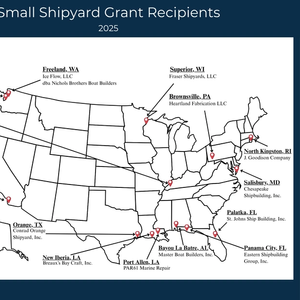
U.S. Transportation Secretary Sean P. Duffy has announced that the Maritime Administration (MARAD) has awarded $8.75 million in grants to revitalize U.S. shipyards and advance America’s maritime dominance.The funding is part of the Small Shipyard Grant program, which supports advanced training, workforce development and new technologies that strengthen U.S. shipbuilding and repair capabilities.

The United States has seized another Venezuela-linked tanker, U.S. officials told Reuters on Thursday, ahead of a meeting between U.S. President Donald Trump and Venezuelan opposition leader Maria Corina Machado.The seizure marks the sixth vessel targeted since mid-December that was either carrying Venezuelan oil or had done so in the past.

The U.S. has seized the Olina tanker in the Caribbean, the fifth vessel targeted in recent weeks as Washington steps up efforts to curb Venezuelan oil exports, U.S. officials said on Friday.The Olina, which according to public shipping database Equasis was falsely flying the flag of Timor Leste, previously sailed from Venezuela and had returned to the region

The U.S. seized a Russian-flagged oil tanker that was being shadowed by a Russian submarine on Wednesday, after pursuing it for more than two weeks across the Atlantic as part of Washington's efforts to block Venezuelan oil exports, U.S. officials said.It appeared to be the first time in recent memory that the U.S. military has seized a Russian-flagged vessel.
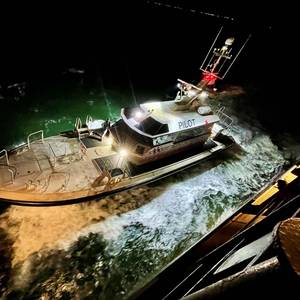
Breaux’s Bay Craft delivered its latest aluminum pilot vessel for the Houston Pilots. The first of two, M/V San Jacinto, is the newest addition to the fleet of high-performance pilot boats,designed for precision, built for strength, and finished with a striking red, white, and blue color scheme that reflects the Gulf Coast heritage of the Houston Pilots.

Expansion into Harbor Tug sector helps Master Boat Builders nearly double in size, from 200 to 400 employees building eight to nine vessels per year, and the prospect of a new drydock plus additional partnerships and government construction contracts promises to power the company forward further, faster.
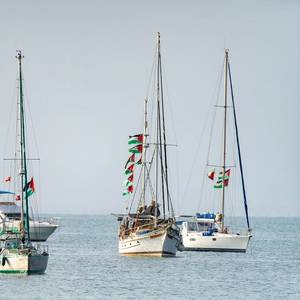
Israeli forces boarded boats with foreign activists carrying aid to Gaza and took them to an Israeli port, disrupting a protest that had become one of most high-profile symbols of opposition to Israel's blockade of the enclave.A video from the Israeli foreign ministry verified by Reuters showed the most prominent of the flotilla's passengers, Swedish climate campaigner Greta Thunberg
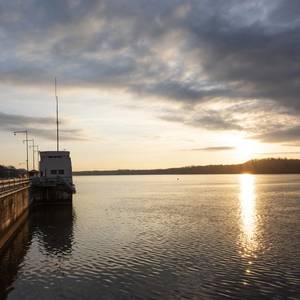
On May 15, the U.S. Army Corps of Engineers released its Fiscal Year (FY) 2025 Work Plan that allocated funds from the FY25 Full-Year Continuing Appropriations and Extensions Act. That bill provided funding for the Corps’ Civil Works mission, typically funded in the annual Energy and Water Development appropriations bill.
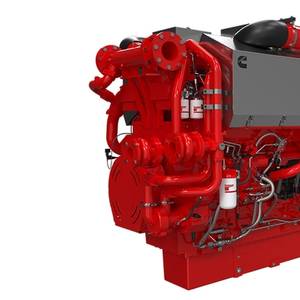
Cummins received Approval in Principle (AIP) from DNV for its methanol-ready QSK60 IMO II and IMO III engines, available in power ratings from 2000 to 2700 hp (1491 - 2013 kW). The approval validates Cummins' retrofittable methanol dual-fuel solution for the global marine market.Cummins plans to launch the retrofit kits post-2028 to align with market demand and infrastructure readiness.
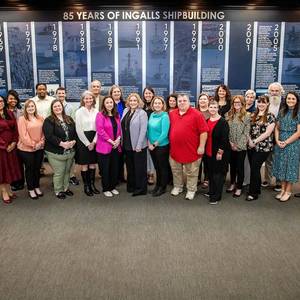
HII’s Ingalls Shipbuilding division has awarded $95,600 in STEM grants to 22 local schools and educational organizations.The aim is to foster innovation and critical thinking among youth. The grants will support a variety of hands-on projects, classroom technology enhancements and STEM-focused curriculums.